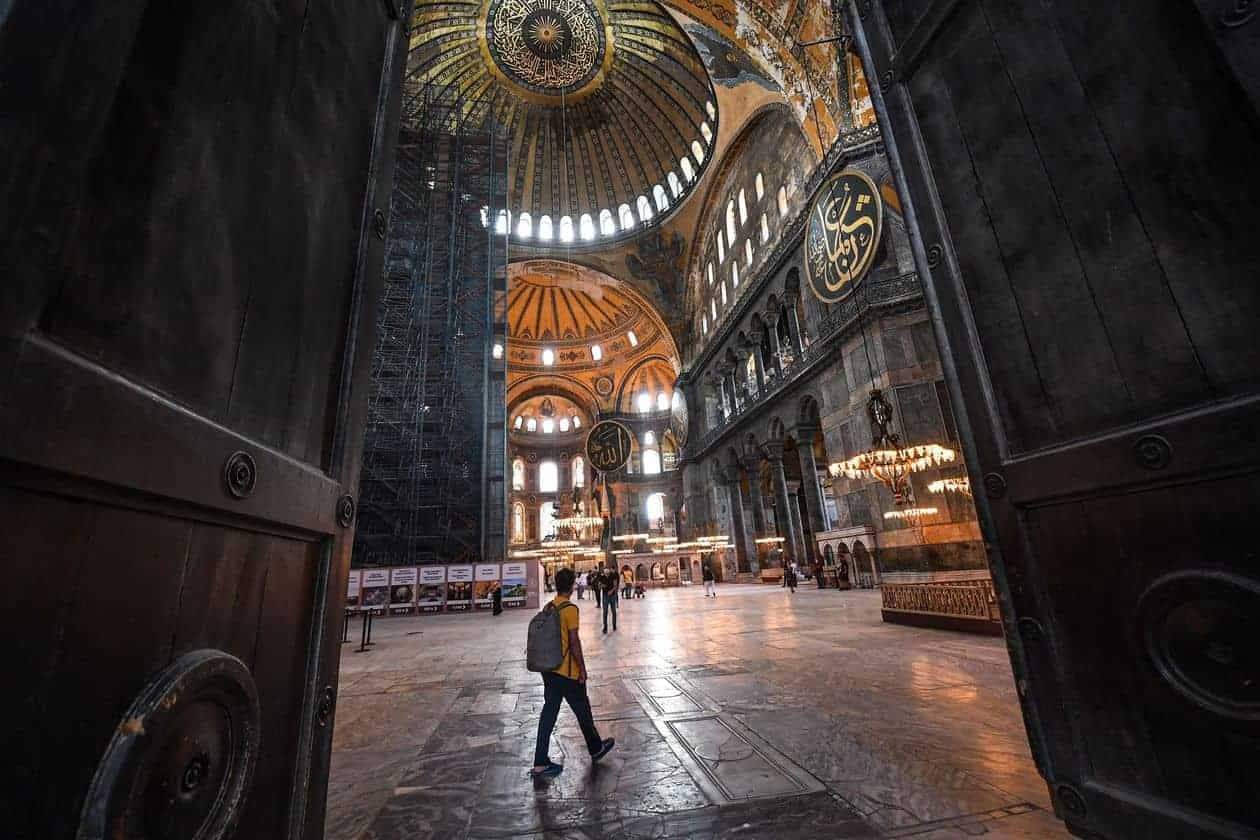Hagia Sophia Must Revert to a Mosque, Turkish Court Rules

A Turkish court has ruled that Istanbul’s sixth-century Hagia Sophia, whose conversion to a museum made it a symbol of secularism in modern Turkey, must revert to its status as a mosque, a shift supported by the country’s President Recep Tayyip Erdogan but opposed by the U.S. and others.
In a ruling issued Friday via the official Anadolu news agency, the Council of State, the country’s highest administrative court, canceled a decades-old decision under which Hagia Sophia—originally a Byzantine cathedral then an Ottoman mosque—was transformed into a museum.
Friday’s ruling effectively returned the building to a place of Islamic worship, Turkish law experts said, the status it had after the Ottomans conquered Constantinople, as Istanbul was previously known, in the mid-15th century.
Minutes after the ruling, Mr. Erdogan, who is expected to make a televised address on the issue later Friday, signed a decree transferring the management of Hagia Sophia from the Ministry of Culture to the Directorate of Religious Affairs.
By returning Hagia Sophia to a home for Muslim prayer, Mr. Erdogan moved closer to fulfilling his longtime pledge of making more room for Islam inside the secular republic, and showed that he still has control over the destiny of Istanbul, even after his ruling party suffered a stinging defeat in last year’s local elections. The 66-year-old president is expected to pray inside Hagia Sophia on July 15, a day marking the fourth anniversary of a coup attempt in 2016.
“It’s all about domestic politics, in order to keep together the eroding voter base,” said Murat Yetkin, a political analyst.
Hagia Sophia’s conversion might not have the rallying effect that the president is looking for, opinion polls suggest, because Turkish voters are highly concerned about the economic aftershocks of the coronavirus outbreak, and paid little attention to the debate over the building’s fate. Opposition leaders have largely sidestepped the Hagia Sophia issue, saying they would rather focus on proposals to repair the economy.
Still, by eliciting a torrent of concerns from Washington to Moscow to Athens, where both political and religious officials warned Ankara over the risk of damaging a unique emblem of exchange between Christians and Muslims, the move has allowed Mr. Erdogan to cast himself as a resolute leader, impervious to foreign pressure.
Earlier this month, U.S. Secretary of State Mike Pompeo said that Washington would view a change in Hagia Sophia’s status as “diminishing the legacy of this remarkable building and its unsurpassed ability…to serve humanity as a much-needed bridge between those of differing faith traditions and cultures.”
The Turkish Foreign Ministry immediately responded that it was “shocked” by Mr. Pompeo’s remarks, adding that “Hagia Sophia, situated on our land is the property of Turkey, like all our cultural assets.”
RELATED
Turkey’s Erdogan Presses to Convert Hagia Sophia Back Into a Mosque (June 26)When Greece protested the planned change last month, urging Turkey to act as a neutral custodian of a site that was once the seat of the Orthodox patriarch of Constantinople and “belongs to all of humanity,” Mr. Erdogan snapped back.
“They tell us that Hagia Sophia mustn’t be converted into a mosque. Are you governing Turkey?” retorted Mr. Erdogan, who has been at the helm of Turkey for 18 years.
Hearing that Turkey was considering changing Hagia Sophia’s status, Unesco, which lists the building as a World Heritage site, said it sent several letters to Turkish authorities expressing its concerns and reminding Ankara that any modification requires prior notification to the U.N. cultural agency.
At stake, a Unesco spokesman said, is Turkey’s responsibility in preserving the universal aspects of the building by promoting inclusive cooperation with all the communities that have a say in its history. “We call on the Turkish authorities to initiate a dialogue before making any decision that could undermine the universal value of the site,” the spokesman said.
The Turkish presidential spokesman, Ibrahim Kalin, said that opening up Hagia Sophia to worship wouldn’t prevent tourists from visiting the site. “So a loss from the world’s heritage is not in question,” he told Anadolu, the Turkish state news agency.
Photo: Visitors look around Hagia Sophia in Istanbul Friday as a court decided whether it should return to being a mosque. - PHOTO: OZAN KOSE/AFP/GETTY IMAGES




